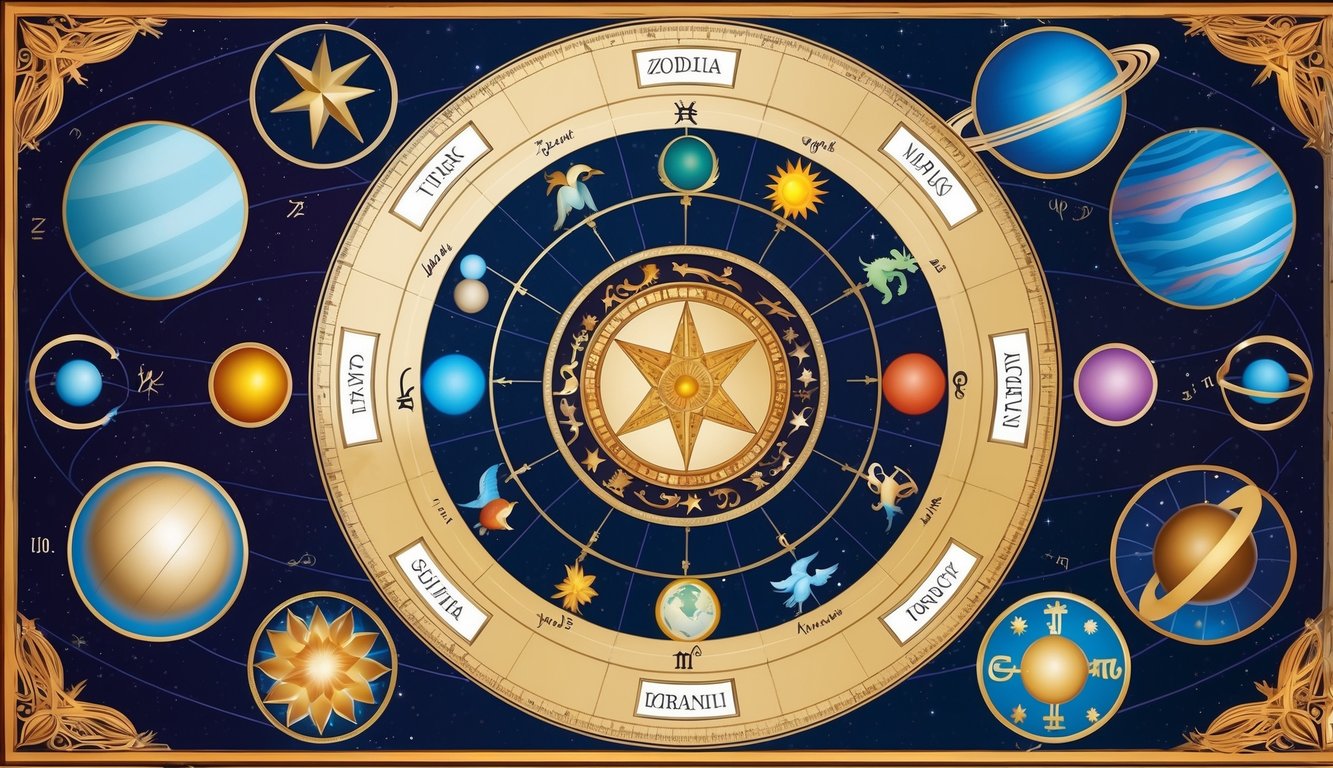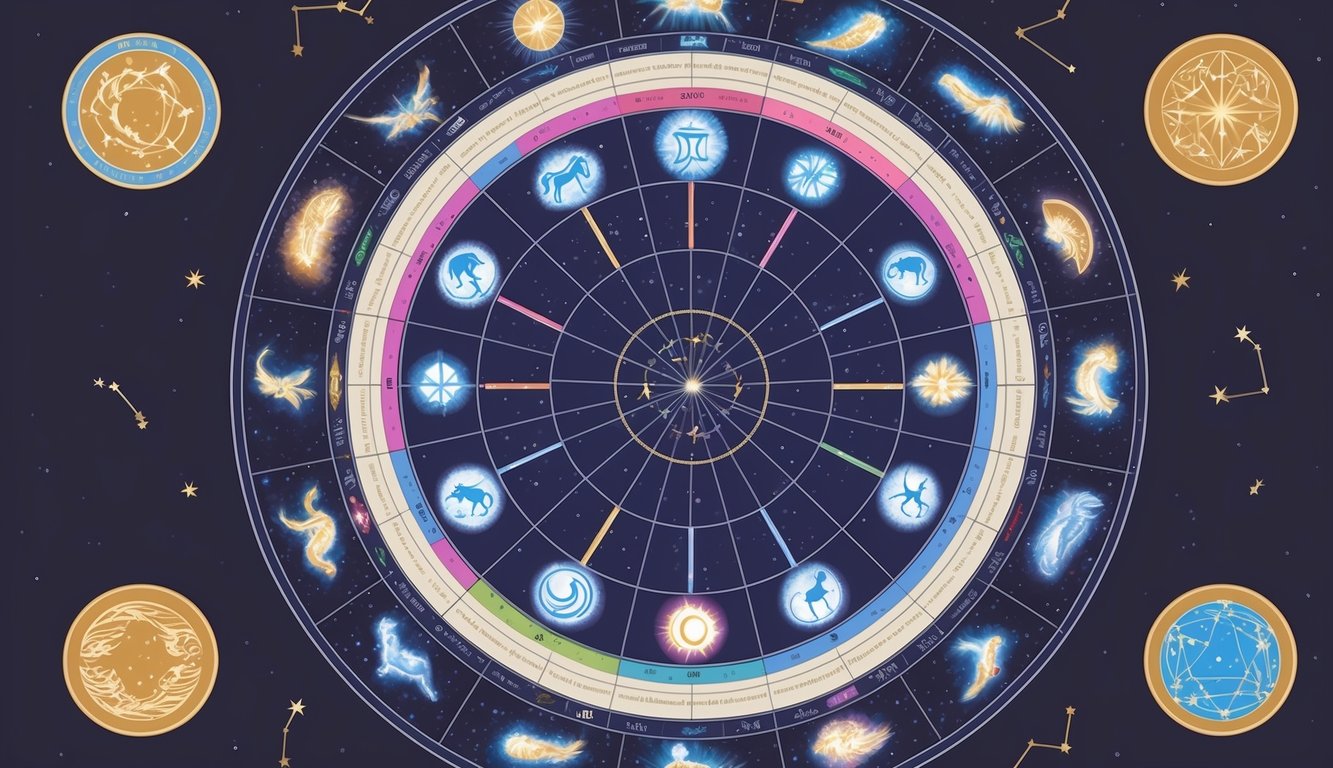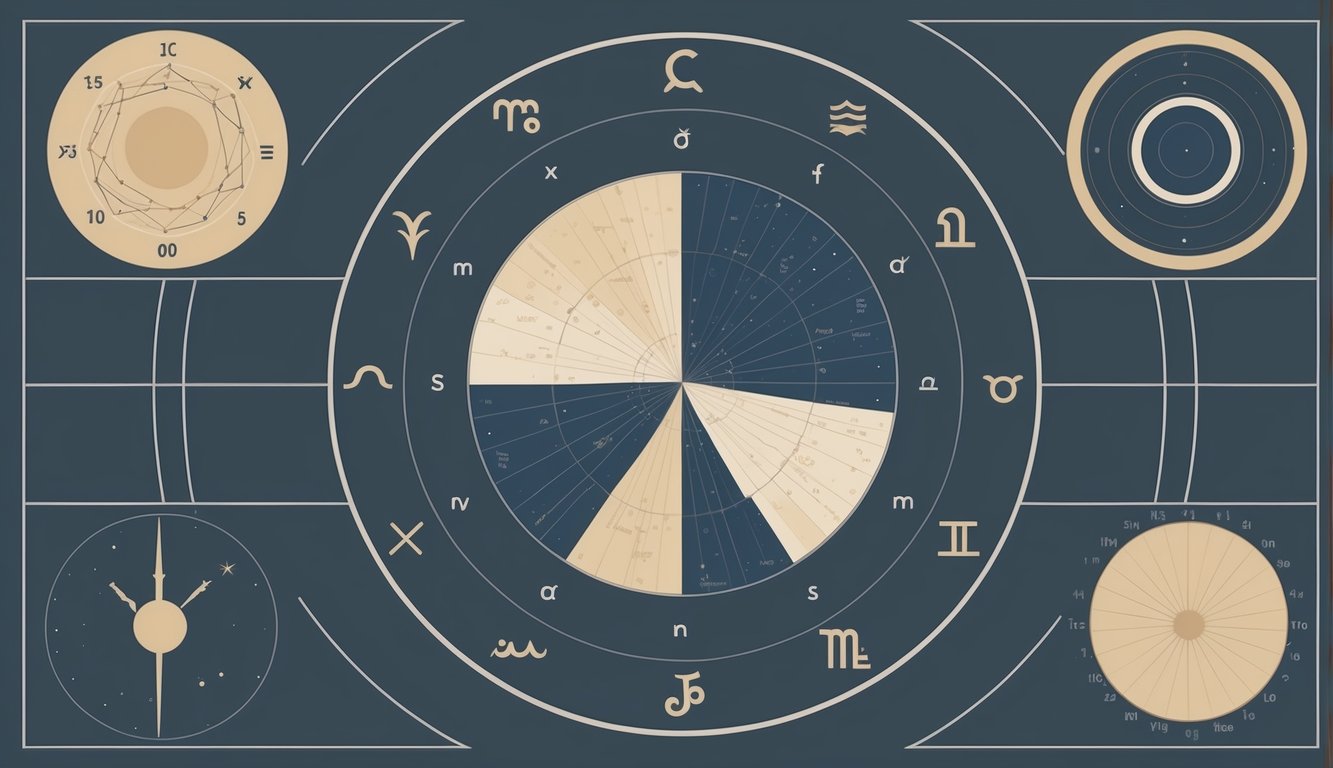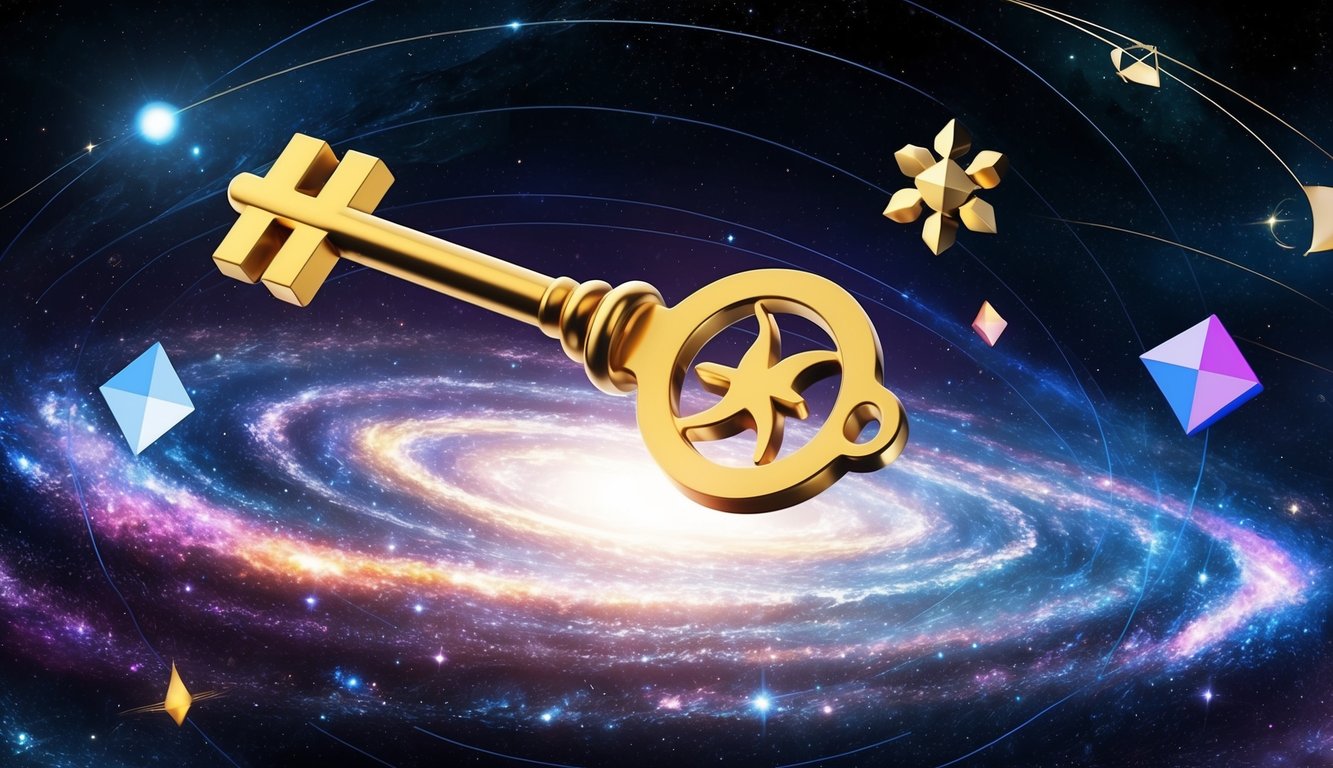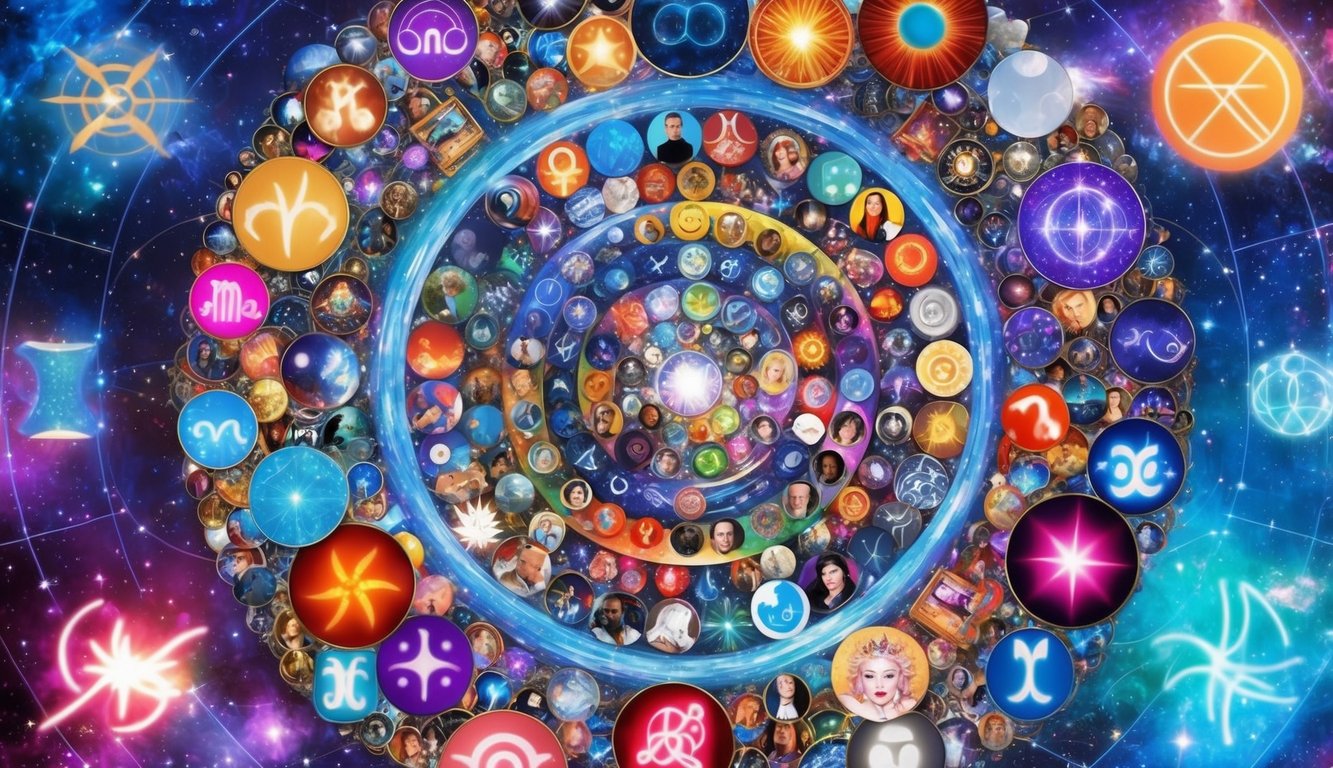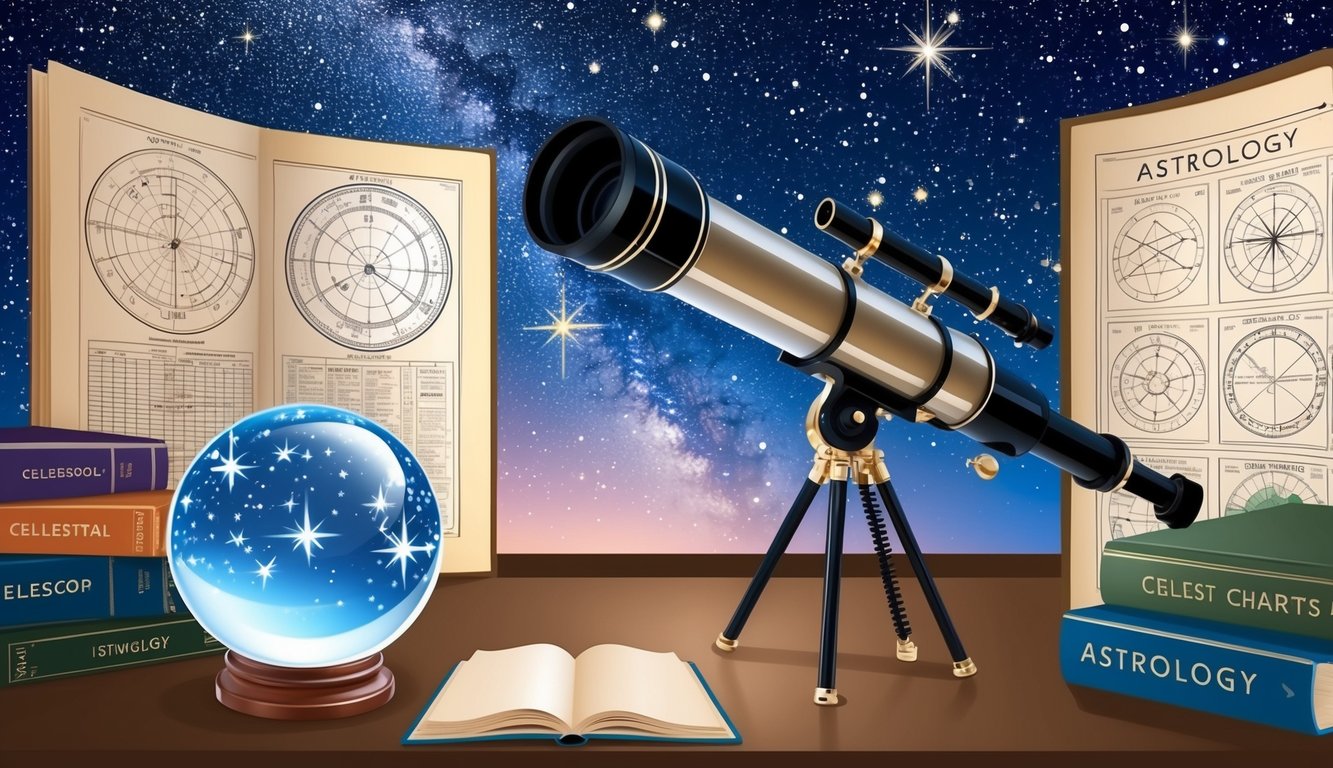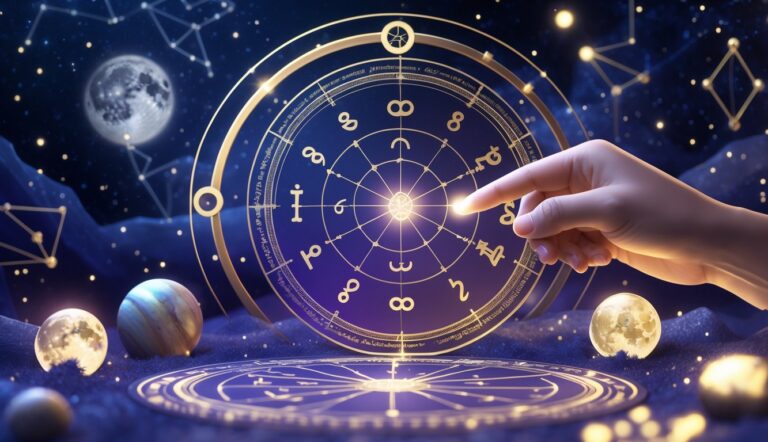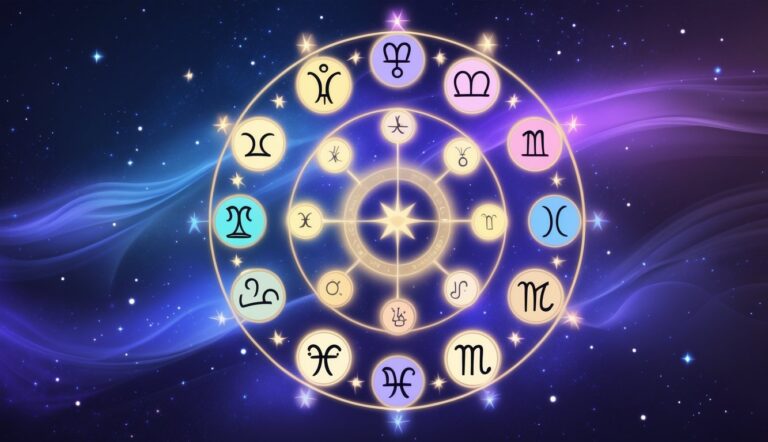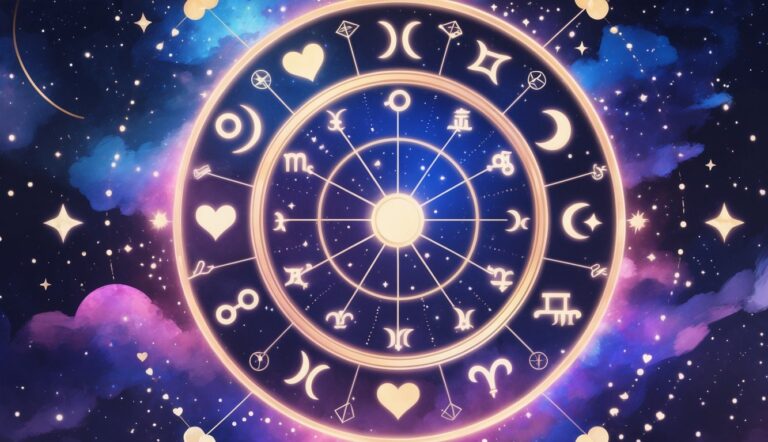Don’t Miss Out On This Unique Astrological Opportunity
Are you tired of spinning your wheels and getting nowhere? Simply put, you’re out of sync: you’re out of alignment with your astral configuration.
But: there’s a kind of map that can help you reclaim your alignment. Think of it as your own personal blueprint to success and happiness: a blueprint that will help you live your most amazing life.
Get started here.
Modern astrology has gained popularity in recent years, offering a fresh perspective on an ancient practice.
It blends traditional astrological concepts with contemporary psychology and personal growth theories.
Modern astrology focuses on self-awareness, personal development, and understanding your unique potential rather than predicting specific events.
You might be familiar with horoscopes in magazines or online, but modern astrology goes much deeper.
It examines your natal chart – a snapshot of the sky at the moment of your birth – to provide insights into your personality, strengths, and challenges.
This approach emphasizes free will and empowerment, encouraging you to use astrological insights as tools for self-reflection and growth.
As you explore modern astrology, you’ll encounter a rich tapestry of symbols, including zodiac signs, planets, and houses.
Each element contributes to a complex picture of your inner world and life path.
Whether you’re a skeptic or a believer, modern astrology offers an intriguing lens through which to view yourself and your place in the cosmos.
Key Takeaways
- Modern astrology focuses on personal growth and self-awareness rather than prediction.
- Your natal chart provides a unique astrological blueprint for understanding yourself.
- Astrological insights can be used as tools for self-reflection and personal development.
The Roots of Astrology
Astrology’s origins stretch back thousands of years, blending ancient wisdom with celestial observations.
You’ll find its foundations deeply intertwined with early civilizations’ attempts to understand the cosmos and human existence.
Historical Overview
Astrology’s roots trace back to Mesopotamia in the 3rd millennium BC.
Don’t Miss Out On This Unique Astrological Opportunity
Are you tired of spinning your wheels and getting nowhere? Simply put, you’re out of sync: you’re out of alignment with your astral configuration.
But: there’s a kind of map that can help you reclaim your alignment. Think of it as your own personal blueprint to success and happiness: a blueprint that will help you live your most amazing life.
Get started here.
You can see its early influence in Sumerian celestial omens, though concrete evidence is limited.
By the 2nd millennium BC, Babylonian astrology emerged as the first organized system.
Greek civilization later refined astrological practices during the Hellenistic period.
This era saw the development of horoscopic astrology, incorporating the zodiac signs you’re familiar with today.
In 140 AD, Ptolemy’s Tetrabiblos became a cornerstone text.
It introduced core techniques still used in modern astrology, like planets, houses, and aspects.
Traditional vs. Modern Approaches
Traditional astrology relied heavily on mathematical calculations and astronomical observations.
You’d find astrologers of the past closely linked to astronomers, often one and the same.
Modern astrology, while rooted in tradition, has evolved to include psychological and spiritual elements.
You’ll notice a shift towards personal growth and self-understanding in contemporary practices.
Traditional methods focused on prediction and fate.
Modern approaches emphasize free will and personal development.
You can see this reflected in the language used – less “what will happen” and more “how can you grow.”
Both share common symbols and techniques, but their interpretations and applications differ significantly.
You’ll find modern astrology more accessible and adaptable to current lifestyles and beliefs.
Understanding the Zodiac
The zodiac forms the foundation of modern astrology.
It divides the sky into 12 distinct signs, each with its own qualities and elements.
These signs provide a framework for understanding personality traits and cosmic influences.
Aries to Pisces
You’re probably familiar with the 12 zodiac signs, starting with Aries and ending with Pisces.
Each sign corresponds to a specific date range and celestial constellation.
Aries kicks off the zodiac year from March 21 to April 19, symbolized by the ram.
Leo, the fifth sign, rules from July 23 to August 22 and is represented by the lion.
Aquarius, the water-bearer, governs from January 20 to February 18.
Pisces, the fish, wraps up the zodiac cycle from February 19 to March 20.
Each sign has unique characteristics and is associated with particular personality traits.
Qualities and Elements
The zodiac is further categorized by qualities and elements, adding depth to astrological interpretations.
The three qualities are cardinal, fixed, and mutable.
Cardinal signs (Aries, Cancer, Libra, Capricorn) initiate change.
Fixed signs (Taurus, Leo, Scorpio, Aquarius) maintain stability.
Mutable signs (Gemini, Virgo, Sagittarius, Pisces) adapt to change.
The four elements – fire, earth, air, and water – also play a crucial role.
Fire signs (Aries, Leo, Sagittarius) are energetic and passionate.
Earth signs (Taurus, Virgo, Capricorn) are practical and grounded.
Air signs (Gemini, Libra, Aquarius) are intellectual and communicative.
Water signs (Cancer, Scorpio, Pisces) are emotional and intuitive.
The Planetary Impact
Planets play a crucial role in shaping your astrological profile.
Each celestial body influences different aspects of your life, personality, and experiences.
Sun and Moon
The Sun represents your core essence and ego.
It’s the central force that drives your conscious self-expression.
Your Sun sign reflects your basic personality traits and how you shine in the world.
The Moon governs your emotions, instincts, and subconscious mind.
It reveals your inner world and how you react to situations on a gut level.
Your Moon sign can offer insights into your emotional needs and comfort zones.
Together, the Sun and Moon form the foundation of your astrological identity.
They work in tandem to shape your overall character and emotional landscape.
The Role of Outer Planets
Jupiter, Saturn, Uranus, Neptune, and Pluto are known as the outer planets.
They move more slowly through the zodiac, exerting a longer-lasting influence on your life.
Jupiter brings growth and expansion.
It’s associated with luck, abundance, and personal development.
You might feel Jupiter’s effects in areas of opportunity and learning.
Saturn teaches important life lessons.
It represents structure, discipline, and responsibility.
Saturn’s influence can be challenging but ultimately leads to maturity and wisdom.
Uranus sparks change and innovation.
It’s linked to sudden breakthroughs and unconventional thinking.
You may experience Uranus as moments of inspiration or unexpected shifts in your life path.
Neptune governs dreams and spirituality.
It can blur boundaries and enhance your intuition.
Neptune’s energy might manifest as artistic inspiration or a desire for transcendence.
Pluto brings transformation and rebirth.
It’s associated with deep psychological changes and power dynamics.
Pluto’s impact often involves letting go of old patterns to make way for new growth.
The Astrological Houses
The 12 astrological houses form a crucial component of your birth chart, revealing key aspects of your life and personality.
Each house represents a different area of experience, from your sense of self to your relationships and career.
Foundations of Personality
Your astrological houses provide deep insights into your character and life path.
The first house, also known as the Ascendant, shapes your outward personality and how others perceive you.
It’s like the front door to your astrological home.
The second house governs your values and resources, while the third relates to communication and short trips.
Your fourth house represents your roots and family life.
The fifth house is all about creativity, romance, and self-expression.
In the sixth, you’ll find matters of health and daily routines.
These first six houses are considered personal, focusing on your individual experiences and growth.
Interpreting House Meanings
When you look at your birth chart, you’ll notice planets occupying different houses.
This placement adds layers of meaning to your astrological profile.
For example, if Mars is in your tenth house of career, you might be particularly ambitious and driven in your professional life.
The seventh house governs partnerships and relationships.
The eighth deals with shared resources and transformation.
Your ninth house relates to higher learning and long-distance travel.
The tenth house represents your public image and career aspirations.
In the eleventh, you’ll find information about your friendships and hopes for the future.
Finally, the twelfth house is linked to your subconscious and hidden aspects of yourself.
Understanding these house meanings can help you gain valuable insights into different areas of your life and personality traits.
The Natal Chart Explained
A natal chart is a snapshot of the sky at the moment of your birth.
It reveals the positions of celestial bodies and provides insights into your personality, strengths, and challenges.
Creation and Interpretation
Your natal chart is created using your birth date, time, and location.
These details pinpoint the exact positions of planets, asteroids, and other celestial points at your birth moment.
The chart is divided into 12 houses, each representing different areas of life.
The zodiac signs and planets within these houses offer clues about your traits and experiences.
For example, your Sun sign represents your core identity, while your Moon sign reflects your emotions and inner world.
To interpret your chart, you’ll need to consider the interplay between planets, signs, and houses.
This process can be complex, but it provides a rich tapestry of information about your life’s potential.
Aspects and Angles
Aspects are the relationships between planets in your natal chart.
These connections can be harmonious or challenging, influencing how different parts of your personality interact.
Common aspects include:
- Conjunctions: Planets close together, blending energies
- Squares: 90-degree angles, creating tension and growth
- Trines: 120-degree angles, bringing ease and flow
The angles in your chart, such as the Ascendant (Rising Sign) and Midheaven, are also significant.
Your Ascendant represents your outward persona, while the Midheaven relates to your career and public image.
Understanding these aspects and angles helps you gain a deeper insight into your strengths, challenges, and life path.
Synthetizing Symbolism
Modern astrology blends ancient wisdom with contemporary insights to create a rich symbolic language.
This synthesis allows for deeper personal interpretation and meaning-making through celestial patterns and planetary relationships.
Planetary Rulerships
You’ll find that each zodiac sign has a planetary ruler in astrology.
These rulerships connect the qualities of planets to specific signs, enhancing their symbolic meaning.
For example, Mars rules Aries, bringing its fiery and assertive energy to the sign.
Venus governs Taurus and Libra, infusing them with themes of love and beauty.
Understanding these connections can deepen your astrological practice.
When you look at a birth chart, you might consider how a planet expresses itself through its ruled sign.
This synthesis of symbolism helps you grasp the nuanced interplay between celestial bodies and zodiac energies.
Aspects: Conjunctions to Oppositions
Aspects in astrology describe the angles between planets in a chart.
You’ll encounter various types, from conjunctions to oppositions.
Each aspect carries its own symbolic meaning, influencing how planetary energies interact.
Conjunctions occur when planets are close together, blending their energies.
Squares create tension and challenge, pushing for growth.
Trines flow easily, bringing harmony.
Oppositions present a need for balance between opposing forces.
By interpreting these aspects, you gain insight into the dynamics at play in a chart.
This symbolic language allows you to weave together a narrative of celestial influences, offering a unique perspective on personal traits and life events.
Modern Astrology in Practice
Modern astrology goes beyond traditional sun sign horoscopes.
It incorporates psychological insights and spiritual growth concepts to provide a more personalized approach to understanding yourself and your life path.
Psychological Astrology
Psychological astrology blends traditional astrological concepts with modern psychology.
You’ll find it focuses on your inner world and personal growth rather than predicting specific events.
This approach uses your birth chart as a tool to explore your personality traits, emotional patterns, and potential challenges.
By examining the positions of planets and their aspects, psychological astrologers help you gain insights into your subconscious motivations.
They might discuss how your Moon sign reflects your emotional needs or how your Mercury placement influences your communication style.
This branch of astrology often incorporates Jungian psychology, viewing astrological symbols as archetypes.
You can use this knowledge for self-reflection and personal development, aiding in areas like relationships and career choices.
Evolutionary Astrology
Evolutionary astrology takes a spiritual approach to chart interpretation.
It suggests that your soul has chosen this particular lifetime to learn specific lessons and evolve.
Your birth chart is seen as a map of your soul’s journey.
This practice focuses on the placement of Pluto and the lunar nodes in your chart.
Pluto’s position is thought to indicate your soul’s purpose, while the lunar nodes represent past life experiences and future growth.
An evolutionary astrologer might help you understand why you face certain challenges in life and how to overcome them.
They could also guide you in discovering your innate talents and how to use them for personal and spiritual growth.
By exploring these concepts, you can gain a deeper understanding of your life’s purpose and work towards personal transformation.
Astrology and Identity
Astrology has become intertwined with modern notions of identity and self-discovery.
It offers a framework for understanding yourself and others through cosmic symbolism.
Class, Race, and Astrology
Your socioeconomic background and racial identity can shape how you engage with astrology.
For some, it’s a tool for personal growth and empowerment.
Others view it as a luxury or cultural appropriation.
Astrology’s accessibility varies across class lines.
Free online resources have democratized it somewhat.
But pricey birth chart readings and courses remain out of reach for many.
Race also impacts astrological practice and interpretation.
Some argue Western astrology centers white perspectives.
This has led to the rise of culturally-specific approaches like Black astrology.
Astrology Beyond Gendered Perspectives
You’ll find astrology moving beyond rigid gender roles.
Many modern astrologers reject the idea of “masculine” and “feminine” planets or signs.
Instead, they emphasize fluidity and individual expression.
Your chart is seen as a unique blueprint, regardless of gender identity.
This shift allows for more nuanced readings.
It’s especially meaningful for non-binary and transgender individuals seeking affirmation through astrology.
Some astrologers now offer LGBTQ+-specific interpretations.
These focus on queer experiences and relationships within astrological frameworks.
Pop Culture and Astrology
Astrology has permeated modern pop culture, influencing everything from social media trends to entertainment.
You’ll find zodiac signs popping up in memes, TV shows, and even fashion choices.
Astrology in Media
Have you noticed how astrology has taken over your favorite podcasts and TV series? Nicholas Campion, a historian of astrology, points out that horoscopes have become a staple in magazines and newspapers.
You might catch characters discussing their star signs in Brooklyn-based sitcoms or see astrology-themed poetry nights popping up in local cafes.
Streaming platforms now offer astrology-focused content, catering to your curiosity about the stars.
You’ll find documentaries exploring the history of zodiac signs and reality shows where contestants are matched based on astrological compatibility.
Even music videos and album art often incorporate celestial themes, adding a cosmic flair to your playlist.
The Zodiac in Social Discussions
You’ve probably seen your friends sharing zodiac memes or discussing Mercury retrograde on social media.
Astrology has become a common language for self-expression and bonding online.
You might use your sign to explain your personality quirks or blame a bad day on planetary movements.
Dating apps now include astrological information in user profiles.
You can swipe right based on zodiac compatibility if that’s your thing.
Astrology has also become a topic of casual conversation at parties and gatherings.
You might find yourself asking new acquaintances, “What’s your sign?” as an icebreaker.
This cosmic small talk has created a shared vocabulary for discussing personal traits and relationships.
The Mystery of the Stars
The stars have captivated humanity for millennia, inspiring awe and wonder.
Their celestial dance across the night sky holds secrets that both astrologers and skeptics continue to ponder.
Astrology and Uncertainty
You might find comfort in astrology during uncertain times.
As the world becomes more complex, many turn to the stars for guidance.
Horoscopes and zodiac signs offer a sense of structure amidst chaos.
But how much can the stars really tell you about your life? Critics argue that astrological predictions are too vague to be meaningful.
Yet believers find patterns and insights that resonate deeply.
Your birth chart is unique, like a cosmic fingerprint.
It maps the positions of celestial bodies at the moment you entered the world.
Some claim this blueprint shapes your personality and future.
Magic and the Cosmos
The cosmos holds an undeniable magic that speaks to your imagination.
Ancient cultures saw gods and myths written in the constellations.
Today, you might gaze up and feel a similar sense of wonder.
Astrology taps into this cosmic enchantment.
It suggests a connection between celestial events and your daily life.
When Mercury goes retrograde, you might blame it for communication mishaps.
But does believing in astrological magic limit your free will? Some argue it provides a framework for self-reflection.
Others worry it becomes a self-fulfilling prophecy.
You’re part of a vast, mysterious universe.
Whether you see the stars as magical guides or distant suns, their allure remains timeless.
Astrology Today
Modern astrology has adapted to the digital age, offering new ways to engage with cosmic wisdom.
It now serves as a tool for personal reflection and growth, accessible at your fingertips.
Online platforms and mobile apps provide daily horoscopes, birth chart analyses, and personalized insights, making astrology more interactive than ever.
With this growing accessibility, many people are also curious about astrology as a profession, often wondering, how much do astrologers earn in today’s digital marketplace.
As demand for astrological guidance increases, opportunities for professional astrologers continue to expand through consultations, courses, and content creation.
The Digital Zodiac
Astrology apps and websites have revolutionized how you access your daily horoscope.
These platforms offer personalized readings based on your birth chart, combining traditional wisdom with modern technology.
You can now receive instant notifications about planetary movements and their potential impact on your life.
Social media has also transformed astrology’s reach.
Astrologers share bite-sized cosmic insights on platforms like Instagram and TikTok, making astrological concepts more digestible and shareable.
This digital shift has made western astrology more accessible to younger generations.
Online communities have formed around astrological interests, allowing you to connect with like-minded individuals across the globe.
These spaces foster discussions about zodiac signs, planetary transits, and personal experiences.
Astrology as a Tool for Reflection
Modern astrology encourages self-reflection and personal growth.
Your daily horoscope can serve as a prompt for introspection, helping you consider different aspects of your life.
It’s not about predicting the future, but rather understanding your present circumstances and potential paths forward.
Many people use astrology as a framework for exploring their emotions and relationships.
By examining planetary positions and their meanings, you gain new perspectives on your experiences.
This practice can lead to increased self-awareness and emotional intelligence.
Astrology also offers a language for discussing personal challenges and aspirations.
You might find it easier to express complex feelings or situations using astrological terms.
This shared vocabulary can facilitate deeper conversations about personal growth and life goals.
Frequently Asked Questions
Modern astrology brings new perspectives to an ancient practice.
Let’s explore some common questions about its contemporary approach and applications.
What are the main differences between modern and traditional astrology?
Modern astrology incorporates psychological concepts and newly discovered planets.
It focuses more on personal growth and self-understanding.
Traditional astrology relies heavily on ancient texts and techniques, emphasizing prediction and fate.
Can you tell me about the role of astrology charts in modern practice?
Astrology charts serve as a map of the sky at your birth moment.
They reveal planetary positions and relationships.
Modern astrologers use these charts to gain insights into your personality, strengths, and potential challenges.
Who is considered to be the father of modern astrology and why?
Alan Leo is often called the father of modern astrology.
He introduced psychological elements to astrological interpretation in the early 20th century.
His work shifted the focus from prediction to character analysis and personal development.
How do modern astrology signs differ from classical ones?
Modern astrology uses the same 12 zodiac signs as classical astrology.
The main difference lies in interpretation.
Modern approaches consider psychological factors and emphasize personal growth within each sign’s traits.
What are some good books or magazines for someone looking to learn about modern astrology?
“The Only Astrology Book You’ll Ever Need” by Joanna Martine Woolfolk is a comprehensive guide.
For magazines, try “The Mountain Astrologer” or “Astrology Magazine.” These resources offer insights into modern astrological techniques and interpretations.
What makes an astrology system accurate, and which one is known for its precision?
Some people debate the accuracy of astrology.
Precision often comes from detailed birth information and skilled interpretation.
Vedic astrology is known for its mathematical precision, while Western astrology focuses more on psychological insights.


